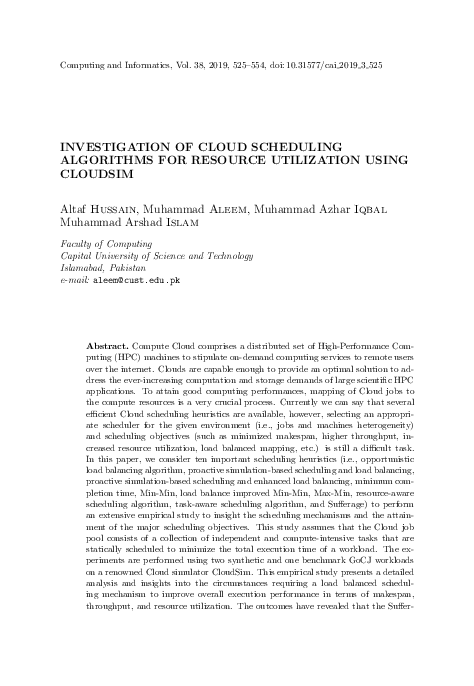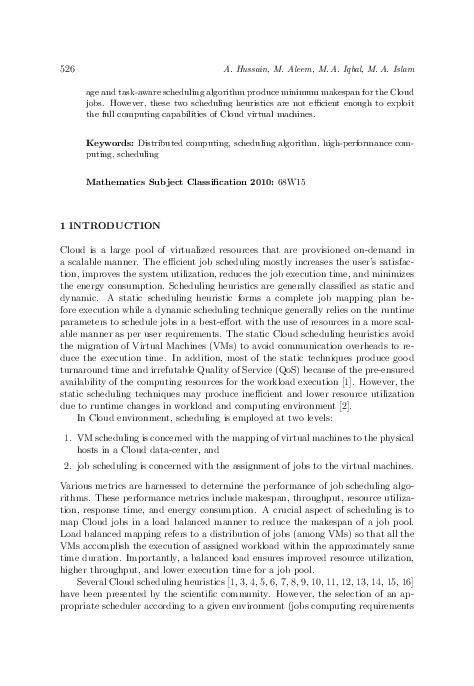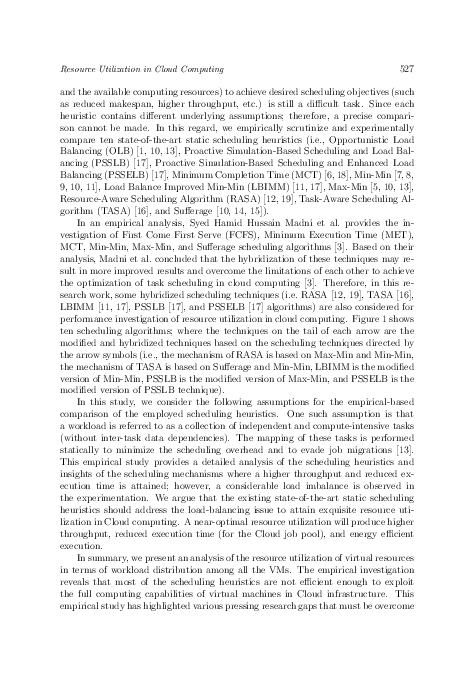Investigation of Cloud Scheduling Algorithms for Resource Utilization Using CloudSim
keywords: Distributed computing, scheduling algorithm, high-performance computing, scheduling
Compute Cloud comprises a distributed set of High-Performance Computing (HPC) machines to stipulate on-demand computing services to remote users over the internet. Clouds are capable enough to provide an optimal solution to address the ever-increasing computation and storage demands of large scientific HPC applications. To attain good computing performances, mapping of Cloud jobs to the compute resources is a very crucial process. Currently we can say that several efficient Cloud scheduling heuristics are available, however, selecting an appropriate scheduler for the given environment (i.e., jobs and machines heterogeneity) and scheduling objectives (such as minimized makespan, higher throughput, increased resource utilization, load balanced mapping, etc.) is still a difficult task. In this paper, we consider ten important scheduling heuristics (i.e., opportunistic load balancing algorithm, proactive simulation-based scheduling and load balancing, proactive simulation-based scheduling and enhanced load balancing, minimum completion time, Min-Min, load balance improved Min-Min, Max-Min, resource-aware scheduling algorithm, task-aware scheduling algorithm, and Sufferage) to perform an extensive empirical study to insight the scheduling mechanisms and the attainment of the major scheduling objectives. This study assumes that the Cloud job pool consists of a collection of independent and compute-intensive tasks that are statically scheduled to minimize the total execution time of a workload. The experiments are performed using two synthetic and one benchmark GoCJ workloads on a renowned Cloud simulator CloudSim. This empirical study presents a detailed analysis and insights into the circumstances requiring a load balanced scheduling mechanism to improve overall execution performance in terms of makespan, throughput, and resource utilization. The outcomes have revealed that the Sufferage and task-aware scheduling algorithm produce minimum makespan for the Cloud jobs. However, these two scheduling heuristics are not efficient enough to exploit the full computing capabilities of Cloud virtual machines.
mathematics subject classification 2000: 68W15
reference: Vol. 38, 2019, No. 3, pp. 525–554


